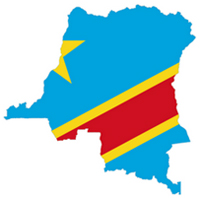
Congolese Civil Society Commits to New EITI Standard
There are few countries where the Extractive Industries Transparency Initiative (EITI) is as well-known and discussed by stakeholders as in the Democratic Republic of Congo (DRC). The initiative serves as a platform for discussions between government ministries, civil society, industry and parliament, and many such actors also see it as a major opportunity for governance reform in the DRC’s mining and oil sectors.

This ebullition has in part been prompted by the wake-up call that came when the DRC was suspended from EITI in 2013. (EITI’s international secretariat suspended the DRC after judging the country’s reports to be insufficient in terms of full disclosure and the reliability of the figures.)
Congolese stakeholders are now trying to address past problems in hopes of being deemed compliant this April. In that context, the DRC published its fourth annual EITI report in December, which shows a record $1.4 billion in government revenues from the oil, gas and mining sector in 2011—up by 60 percent from the year before. The country is now in the process of implementing the new standard that was approved in at the EITI global conference in Sydney last year.
The DRC is heavily reliant on the mining of copper, diamonds, and coltan, among other resources. Minerals constitute more than 90 percent of exports and 20 percent of government revenues, but the country is facing multiple governance obstacles. These are problems that the new EITI standard can help to solve, and citizens, along with the government, are well aware of the potential.
The revised EITI rules aim to reinforce transparency and accountability in the sector, and should drive reforms that would result in revenues from extractive resources contributing to development and greater benefits for citizens. While the previous EITI requirements focused only on revenue transparency, the new standard covers additional topics equally important to the DRC, such as the process for allocating licenses, the financial operations of state-owned companies, and subnational revenue transfers.
As part of its work on the implementation of the new standard, the Revenue Watch Institute (RWI) has provided technical and financial support to the DRC’s Plateforme des Organisations de la Societé Civile dans le Secteur Minier, known as POM. As a result, earlier this month 35 civil society representatives from Kinshasa and the provinces (Bandundu, Bas Congo, Katanga and the two Kasais) gathered to learn more about the new EITI standard and discuss how the DRC can meet its requirements.
Over the course of three days, participants—some of whom are also members of the national EITI multi-stakeholder group (MSG)—identified key governance issues and debated priorities with specific reference to the DRC context in order to devise an action plan.
Among the challenges identified were the lack of reliable production data from companies; opacity in the license allocation process; lack of capacity of certain tax agencies; and difficulties in tracing revenue flows into the treasury. Participants also discussed how to include the new EITI requirements in the ongoing revision of the mining code and creation of a hydrocarbon code, especially with respect to beneficial ownership, license bidding processes, and subnational revenue transfers. The discussions culminated in an action plan for civil society that will also nourish the MSG’s 2014 work plan.
Members of civil society in the DRC have shown that they are ready and willing to work hard to meet the new EITI standard, and this commitment will serve the DRC well in its bid to reform the extractive sector.
